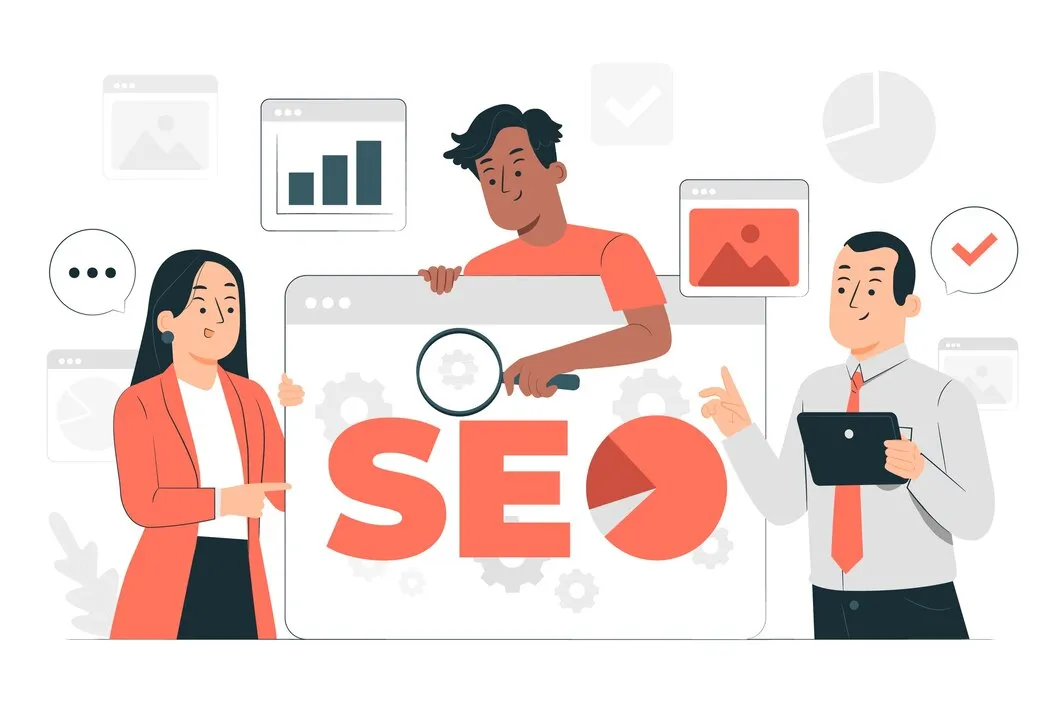What is Meant by Website Optimization?
Introduction:
Website optimization is a crucial aspect of the digital landscape that plays a pivotal role in enhancing user experience, driving traffic, and achieving business goals. In this comprehensive guide, we will delve into the intricacies of what is meant by website optimization, its significance, and the key strategies involved.
I. Definition of Website Optimization:
Website optimization refers to the process of making changes to your website elements to improve its performance, user experience, and overall effectiveness. This multifaceted approach involves various techniques, including optimizing content, enhancing website speed, ensuring mobile responsiveness, and employing SEO strategies.
II. Significance of Website Optimization:
Enhanced User Experience:
Website optimization focuses on creating a seamless and user-friendly experience. By improving navigation, minimizing page load times, and ensuring mobile responsiveness, users are more likely to engage with the content, leading to increased satisfaction and retention.
Search Engine Visibility (SEO):
Optimizing your website is integral to improving its visibility on search engines. Search engines like Google favor well-optimized websites, resulting in higher rankings and increased organic traffic. This, in turn, contributes to the overall success of your online presence.
Conversion Rate Optimization (CRO):
A well-optimized website is more likely to convert visitors into customers or subscribers. By strategically placing call-to-action buttons, streamlining the checkout process, and ensuring a smooth user journey, you can boost your website's conversion rate and achieve your business objectives.
Competitive Advantage:
In a competitive online landscape, having a well-optimized website provides a significant edge. A website that loads quickly, is easy to navigate, and offers valuable content stands out among competitors, attracting and retaining a larger audience.
III. Key Strategies for Website Optimization:
Content Optimization:
High-quality, relevant, and engaging content is at the core of website optimization. Conduct keyword research to identify terms relevant to your business and incorporate them naturally into your content. Regularly update and refresh your content to keep it current and appealing to both users and search engines.
Page Speed Optimization:
Page speed is a critical factor in user experience and search engine rankings. Compress images, leverage browser caching, and minimize HTTP requests to ensure your website loads quickly. Users are more likely to abandon slow-loading websites, making page speed optimization essential.
Mobile Optimization:
With the increasing use of mobile devices, ensuring that your website is mobile-friendly is imperative. Adopt responsive design practices to provide an optimal viewing experience across various devices. Google also considers mobile-friendliness as a ranking factor, making it crucial for SEO.
SEO (Search Engine Optimization):
Implementing SEO best practices is fundamental to website optimization. This includes optimizing meta tags, using descriptive URLs, creating an XML sitemap, and building high-quality backlinks. A well-executed SEO strategy improves your website's visibility and attracts organic traffic.
User Interface (UI) and User Experience (UX) Design:
A well-designed and intuitive user interface enhances the overall user experience. Focus on clear navigation, visually appealing layouts, and user-friendly interfaces. Conduct usability testing to identify and address any potential issues that may impact user satisfaction.
Technical SEO:
Technical SEO involves optimizing the technical aspects of your website to improve its search engine performance. This includes optimizing site structure, fixing crawl errors, creating a robots.txt file, and implementing schema markup. Addressing technical SEO issues contributes to a more accessible and search engine-friendly website.
Security Measures:
Website security is paramount for both user trust and search engine rankings. Implement HTTPS, regularly update software and plugins, and conduct security audits to protect your website from potential threats. A secure website not only safeguards user data but also enhances its credibility.
Social Media Integration:
Integrating social media elements into your website can amplify its reach and engagement. Add social sharing buttons, display social feeds, and encourage user-generated content. Social signals from platforms like Facebook, Twitter, and Instagram can positively impact your website's visibility in search engine results.
IV. Monitoring and Analytics:
Google Analytics:
Utilize tools like Google Analytics to monitor and analyze website performance. Track user behavior, identify popular pages, and understand traffic sources. This data provides valuable insights into user preferences, enabling you to make informed decisions for ongoing optimization efforts.
A/B Testing:
A/B testing involves comparing two versions of a webpage to determine which performs better. Experiment with variations in design, content, or call-to-action elements to identify the most effective combinations. A/B testing helps refine your website elements based on user preferences and behaviors.
V. Continuous Improvement:
Website optimization is an ongoing process that requires continuous monitoring and adaptation to evolving trends. Regularly assess your website's performance, gather user feedback, and stay informed about industry best practices. Implementing a culture of continuous improvement ensures that your website remains effective and competitive in the ever-changing digital landscape.
VI. SEO Cost Per Month in India
When considering the SEO cost per month in India, Indian Website Company (IWC) emerges as a reliable and cost-effective solution. IWC, a leading web services provider in India, offers competitive pricing for its SEO services, making it an attractive choice for businesses seeking to enhance their online visibility. With a team of skilled professionals well-versed in search engine optimization strategies, IWC focuses on delivering results that align with clients' goals. The affordability of their monthly SEO packages, combined with a commitment to quality, positions IWC as a preferred partner for businesses looking to optimize their websites and climb the ranks in search engine results, ultimately driving organic traffic and boosting online success.
Conclusion:
In conclusion, website optimization is a multifaceted strategy encompassing various elements to enhance user experience, increase search engine visibility, and achieve business objectives. By focusing on content quality, technical aspects, user interface, and analytics, businesses can create a website that not only attracts but retains a valuable online audience. Embracing continuous improvement ensures that your website remains effective and responsive to the dynamic nature of the digital realm.
